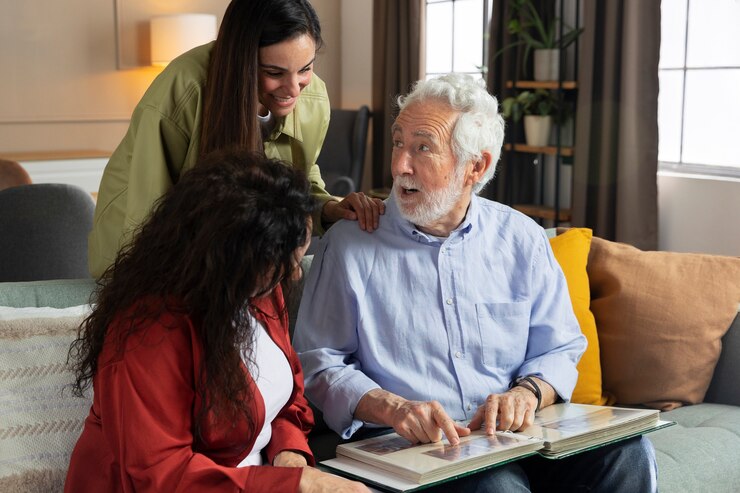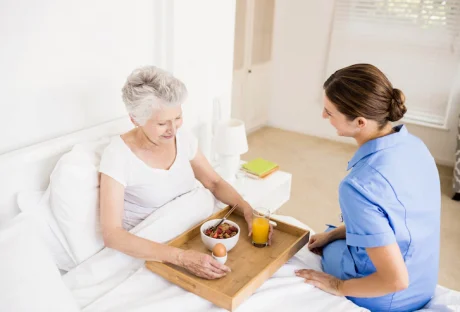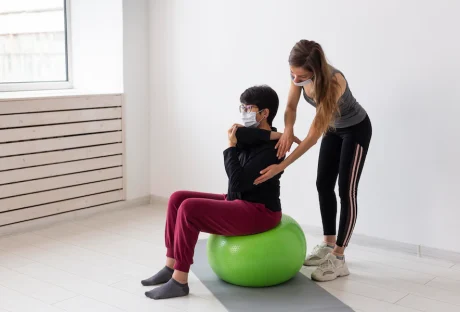When individuals approach the twilight of their lives, they often confront a whirlwind of emotions—fear, regret, hope, acceptance, and more.
This intense period termed the end-of-life phase, sees many grappling with existential questions and seeking answers to life’s most profound mysteries. This search for clarity and solace is where the spiritual dimension of human existence comes to the forefront.
Many turn to spirituality as a source of comfort, a beacon of hope, and a framework for making sense of their experiences. It’s within this complex tapestry of emotions and spiritual quests that hospice chaplains, representing the realm of hospice chaplaincy, emerge as pivotal figures.
These professionals dedicate themselves to guiding individuals through this intricate journey, helping them find spiritual serenity amidst the tumultuous currents of approaching mortality. The subsequent sections delve deeper into understanding the multifaceted role of these spiritual caregivers.
The Integral Role of a Hospice Chaplain
- Defining the Role in Greater Detail: Hospice chaplains stand at the crossroads of spirituality and caregiving. They aren’t just religious figures; they are trained professionals skilled in offering spiritual support tailored to the unique needs of each individual. Their role goes beyond mere ritualistic practices. They act as confidants, counselors, and guides, providing a listening ear, heartfelt advice, and spiritual interventions tailored to the individual’s beliefs and wishes. Whether helping patients find peace with their life’s journey, facilitating forgiveness and reconciliation, or simply being present during moments of deep reflection, hospice chaplains are there to ensure that the spiritual dimension of end-of-life care is addressed with the utmost sensitivity and respect.
- The Spectrum of Interfaith Approaches: One of the most remarkable aspects of hospice chaplaincy is its inclusiveness. Recognizing the diverse tapestry of beliefs and spiritual outlooks in our globalized world, hospice chaplains are trained to cater to various religious and spiritual traditions. Whether a person identifies with a major world religion, a lesser-known spiritual path, or even if they consider themselves secular or agnostic, chaplains are there to provide support. This approach ensures that every individual, irrespective of their belief system, has access to spiritual care that resonates with them. By adopting such an inclusive approach, hospice chaplains affirm the idea that every end-of-life journey is unique and every individual’s spiritual needs deserve to be met with understanding, respect, and personalized care.
The end-of-life journey is a deeply personal and transformative phase. While medical professionals focus on alleviating physical pain and discomfort, hospice chaplains address the soul’s yearnings, questions, and quest for peace. By offering tailored spiritual interventions and an inclusive approach that honors diverse beliefs, they ensure that individuals and their families find the spiritual solace they seek during these poignant moments.
Delving Deeper: Spiritual Needs, Interventions, and Family Impact in the End-of-Life Journey
Spiritual Needs at the End of Life
- Seeking Meaning and Purpose: The imminence of death often prompts deep introspection. Many individuals reflect upon their life’s journey, trying to discern its purpose. These reflections might encompass personal achievements, missed opportunities, unfulfilled dreams, and significant life events. In such times, spiritual guidance assists individuals in navigating these contemplations, helping them find peace with their life narrative, celebrating accomplishments, and making peace with regrets.
- Reconciliation: Estrangements and unresolved conflicts become especially poignant during the end-of-life phase. Many individuals desire to reconnect, apologize, or seek forgiveness from loved ones. The urge to mend relationships, settle old disputes, or express unspoken feelings becomes vital. The spiritual guide aids in facilitating these reconciliations, offering counsel, and, if necessary, acting as a mediator.
- Fear and Hope: The mystery of what comes after death is a source of both trepidation and anticipation. The fear of the unknown contrasts starkly with hopes or beliefs of an afterlife, reincarnation, or spiritual continuation. By addressing these concerns, chaplains help balance these emotions, emphasizing the transformative nature of death in various spiritual traditions.
- Cultural and Traditional Rites: Every culture and religion has rituals that honor the dying and the deceased. Whether it’s a specific prayer, a song, a way, or even silence, these rites are paramount for the person passing and their family. Respecting and facilitating these practices is crucial to providing a sense of closure, continuity, and respect for the individual’s spiritual and cultural identity.
Interventions by Hospice Chaplains
Active Listening: One of the most profound gifts a chaplain can offer is the gift of presence—simply being there, offering a listening ear. By actively listening, they provide a safe and non-judgmental space for individuals to voice their deepest feelings, concerns, and reflections, guided.
Meditations and Prayers: Tailoring spiritual practices to individual needs, chaplains might guide patients through meditations or prayers that align with their beliefs. These sessions can instill a sense of calm, acceptance, and connection with the divine or the universe.
Scripture Readings: For those who find solace in religious texts, chaplains can read passages that resonate with the patient’s current emotions or questions. Scriptures, whether from the Bible, Quran, Torah, Bhagavad Gita, or other religious texts, can offer comfort, guidance, and a sense of continuity.
Ritual Facilitation: Be it sacraments, candle lighting, or even non-religious rituals like listening to a specific song or watching a sunset, chaplains assist in organizing and facilitating these rites, ensuring the Grief Support: The dying process isn’t just about the individual; it encompasses the family and loved ones. Chaplains extend their support to these grieving souls, offering a shoulder to lean on, words of comfort, and guidance through their emotional journey.
The Impact on Families
- Emotional Anchoring: In the tumultuous sea of emotions, chaplains act as an anchor for families. Their calm presence and experience in navigating such situations provide a stabilizing effect, helping families cope more effectively.
- Guidance through Rituals: Families often seek direction in performing end-of-life rituals correctly and meaningfully. Chaplains offer insights, respect cultural nuances, and sometimes even take the lead in ensuring these rites are conducted reverently.
- After-death Support: The journey doesn’t end with the passing of a loved one. Grief, memories, and the void left behind are real and profound. Chaplains continue to support families, providing bereavement counseling, helping them process their loss, and guiding them toward healing and acceptance.
The spiritual dimensions of the end-of-life journey are intricate, deeply personal, and encompass more than just the dying individual. Hospice chaplains, with their nuanced understanding, play an instrumental role in ensuring that this journey, for both the individual and their families, is navigated with dignity, respect, and profound compassion.
Continuous Education and Self-care
- Training: The importance of ongoing training for chaplains to stay updated on best practices and religious rites.
- Self-care Rituals: Chaplains must cultivate personal rituals or practices to manage their well-being.
- Peer Support: Engaging with fellow chaplains or professionals to discuss challenges and share experiences.
Conclusion
The journey towards the end of life is deeply personal, and the spiritual terrain can be complex. Hospice chaplains, with their expertise and compassion, play an indispensable role in facilitating spiritual transitions during this phase. Their ability to address the deep-seated spiritual needs of the dying and their families ensures that the end-of-life journey is one of meaning, reconciliation, and peace.
Read Also:






















